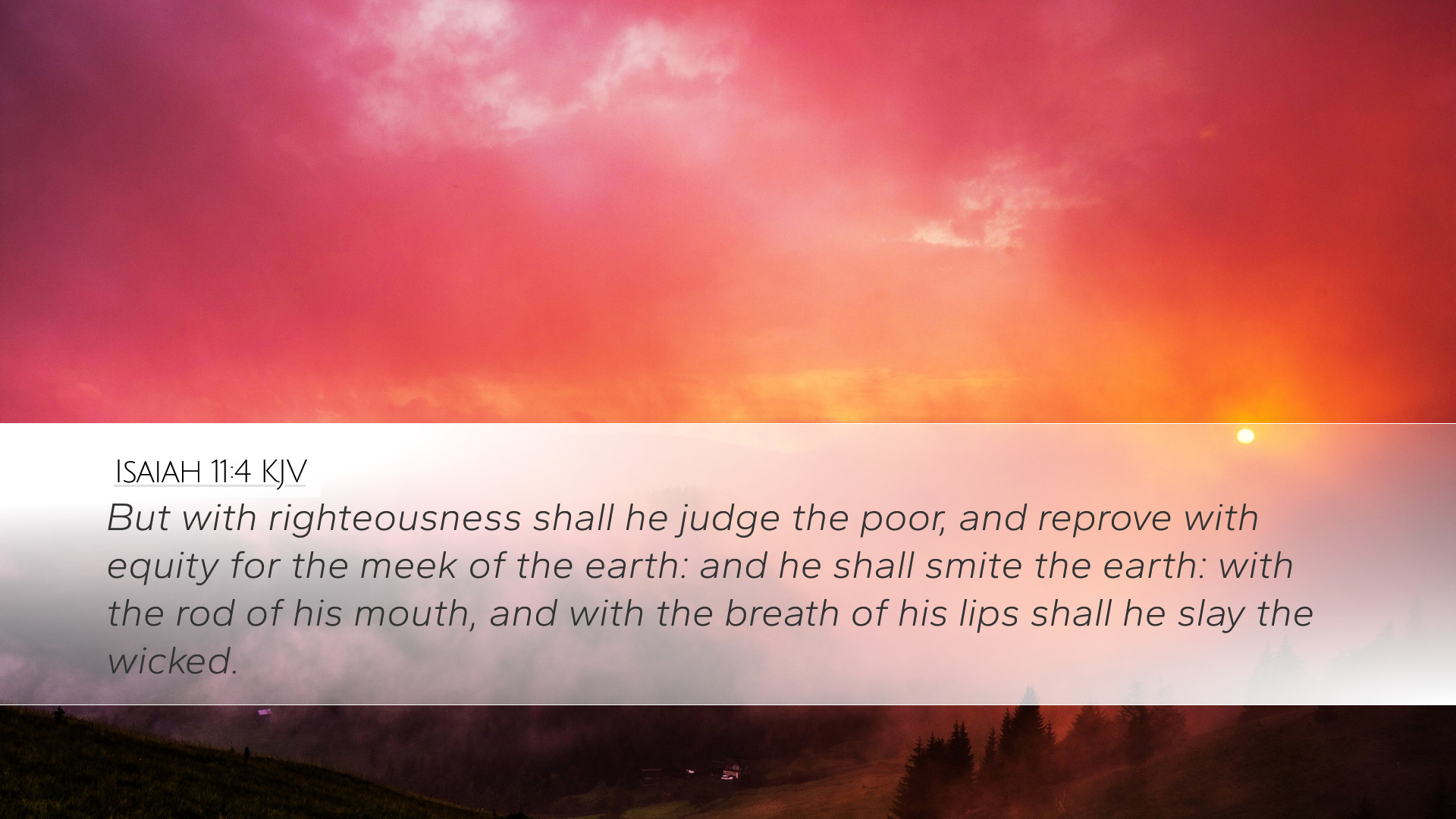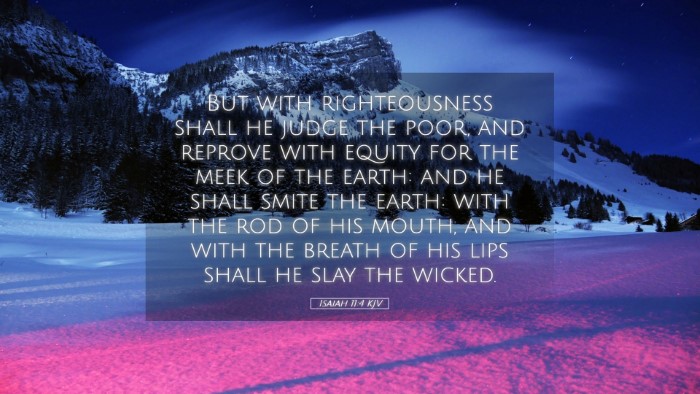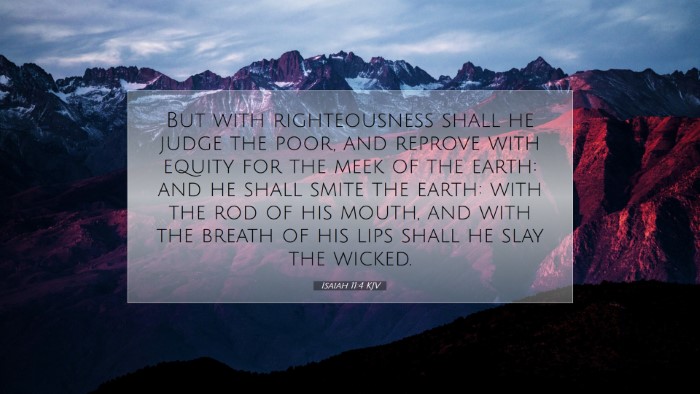Commentary on Isaiah 11:4
Verse: "But with righteousness shall he judge the poor, and reprove with equity for the meek of the earth: and he shall smite the earth with the rod of his mouth, and with the breath of his lips shall he slay the wicked." (Isaiah 11:4, KJV)
Introduction
The prophetic utterance in Isaiah 11:4 presents a striking portrayal of the Messiah, emphasizing His righteous judgment and equitable retribution. This verse encapsulates the core of God's justice and mercy as manifested in Christ. Scholars and theologians have long engaged with this passage, recognizing its profound implications for social justice, spiritual integrity, and divine authority.
Analysis of the Text
This text centers on two primary themes: righteous judgment and divine retribution.
1. Righteous Judgment
Matthew Henry asserts that the Messiah’s judgment will be characterized by righteousness, especially towards the poor and the meek. The poor here symbolizes not just a social status but encompasses those who are spiritually impoverished, marginalized, and oppressed. Henry emphasizes that Christ’s purpose was to establish justice that reflects God's heart and concern for the needy.
Albert Barnes, in his commentary, expands on this by describing how the Messiah's rule will be unlike human rulers, who often lean toward bias and self-interest. Instead, Jesus embodies impartiality, favoring those who are disadvantaged. The righteousness with which He judges brings hope to those who feel voiceless and powerless.
Application to Ministry
Pastors are urged to articulate this vision of divine justice in their teaching, framing God's kingdom as one where compassion and concern for the less fortunate are paramount. This aligns church ministry with the heart of the Gospel.
2. Equity for the Meek
Adam Clarke notes that to "reprove with equity" indicates a fair and gentle correction, demonstrating God's desire for restoration rather than mere punishment. The meek are characterized not just by their humility but their readiness to submit to God’s authority. Clarke highlights that meekness does not signify weakness; rather, it embodies strength restrained by the Spirit.
The Role of the Church
In the contemporary context, this calls for the church to advocate for the meek and the marginalized. It encourages Christians to engage in acts of advocacy and support that reflect the ethos of Jesus’ kingdom.
Divine Retribution
The latter portion of Isaiah 11:4 poetically illustrates the authority of the Messiah through aggressive imagery: "he shall smite the earth with the rod of his mouth." Here, the emphasis lies on His word, which holds creative and destructive power.
Matthew Henry emphasizes that this "rod" symbolizes a corrective tool, bringing both judgment and refinement to the earth. Barry’s interpretation suggests that Christ’s spoken word can create change, emphasizing the transformative power of divine authority.
Wickedness Addressed
In addressing wickedness, Clarke points out that the "breath of his lips shall slay the wicked," indicating the inevitability of divine justice against that which persists in rebellion against God. The passage serves as a stark warning to the unrepentant, revealing that judgment is not merely a future reality but an ongoing struggle within human hearts and societies.
Theological Implications
This segment of Isaiah presents a profound theological implication regarding the dichotomy of grace and judgment. The church must grapple with this, recognizing that while God's grace is abundantly offered, His justice also prevails.
Conclusion
Isaiah 11:4 serves as a powerful reminder of the character of Christ as both judge and Savior. His righteous judgment offers comfort to the oppressed while simultaneously acting as a warning to the wicked. For pastors, students, theologians, and scholars, this verse encapsulates the balance of justice and mercy that is central to the biblical narrative of redemption.
In summary, Isaiah 11:4 calls us to reflect on our roles as conduits of God's justice and agents of His mercy, actively promoting equity within our communities and ensuring that the voice of the poor and meek is heard and valued.


